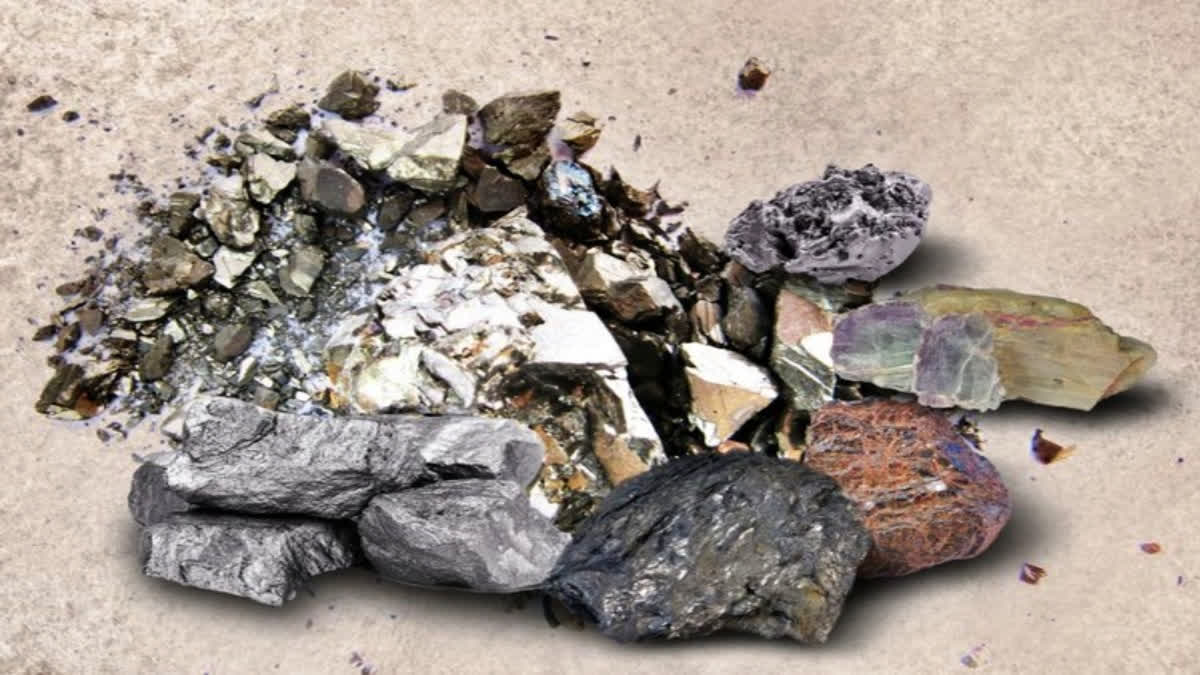New Delhi: India has identified 30 critical minerals taking into account its requirements for sectors like defence, agriculture, energy, pharmaceutical, and telecom and in line with its Atmanirbar (self-reliance) roadmap. The first ever report titled 'Critical Minerals for India', prepared by an expert team constituted by the Ministry of Mines was unveiled in a function Wednesday by Union Minister of Coal, Mines Pralhad Joshi.
Those critical minerals are Antimony, Beryllium, Bismuth, Cobalt, Copper, Gallium, Germanium, Graphite, Hafnium, Indium, Lithium, Molybdenum, Niobium, Nickel, PGE, Phosphorous, Potash, REE, Rhenium, Silicon, Strontium, Tantalum, Tellurium, Tin, Titanium, Tungsten, Vanadium, Zirconium, Selenium, and Cadmium. They are expected to serve as a guiding framework for policy formulation, strategic planning and investment decisions in the mining sector. Critical minerals are those minerals that are essential for economic development and national security.
"The future global economy will be underpinned by technologies that depend on minerals such as lithium, graphite, cobalt, titanium, and rare earth elements. These are essential for the advancement of many sectors, including high-tech electronics, telecommunications, transport, and defence. They are also vital to power the global transition to a low carbon emissions economy, and the renewable energy technologies that will be required to meet the 'Net Zero' commitments of an increasing number of countries around the world," the executive summary of the report read.
The report noted it has become imperative to identify and develop value chains for the minerals which are critical to the country. The Ministry of Mines has constituted a seven-member Committee under the chairmanship of Joint Secretary (Policy), Ministry of Mines in November 2022 to identify the list of minerals critical. The Committee had a series of deliberations among the members and decided to arrive at the list.
The Committee, besides listing critical minerals, also recommended the creation of a Centre of Excellence for Critical Minerals (CECM) in the Ministry of Mines, which will periodically update the list of critical minerals for India and notify the critical mineral strategy from time to time and will execute a range of functions for the development of an effective value chain of critical minerals.
Complementing the efforts of the Ministry, Minister Joshi pointed out that it is for the first time India has identified the comprehensive list of critical minerals taking into account the requirements of key sectors. Recalling Prime Minister Narendra Modi's recent visit to the US, Joshi said India has become the newest partner in the coveted Mineral Security Partnership (MSP) to bolster critical mineral supply chains.
Further, disclosing that 30 critical minerals have been identified in the report released today, the Minister stated that at present Geological Survey of India (GSI) is more focused on the exploration of critical and deep-seated minerals. (ANI)



